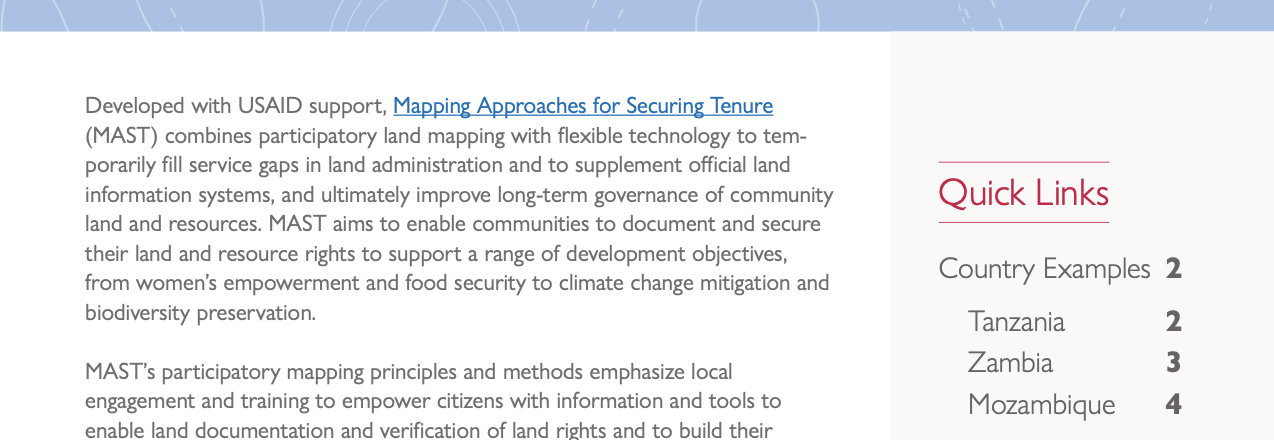Developed with USAID support, Mapping Approaches for Securing Tenure (MAST) combines participatory land mapping with flexible technology to temporarily fill service gaps in land administration and to supplement official land information systems, and ultimately improve long-term governance of community land and resources. MAST aims to enable communities to document and secure their land and resource rights to support a range of development objectives, from women’s empowerment and food security to climate change mitigation and biodiversity preservation.
USAID has adapted MAST to strengthen tenure security and improve resource governance in local communities throughout Tanzania, Zambia, and Mozambique, among other countries, providing solid foundations for further land mapping and property formalization, both systematically and on an on-demand basis. How can communities, governments, and other stakeholders continue to use, fund, and scale MAST after initial investments? The “Scaling and Sustaining MAST” brief provides an overview of lessons learned on the sustainable utilization and scaling of MAST, as well as recommended practices for ensuring continued use of the approach.


